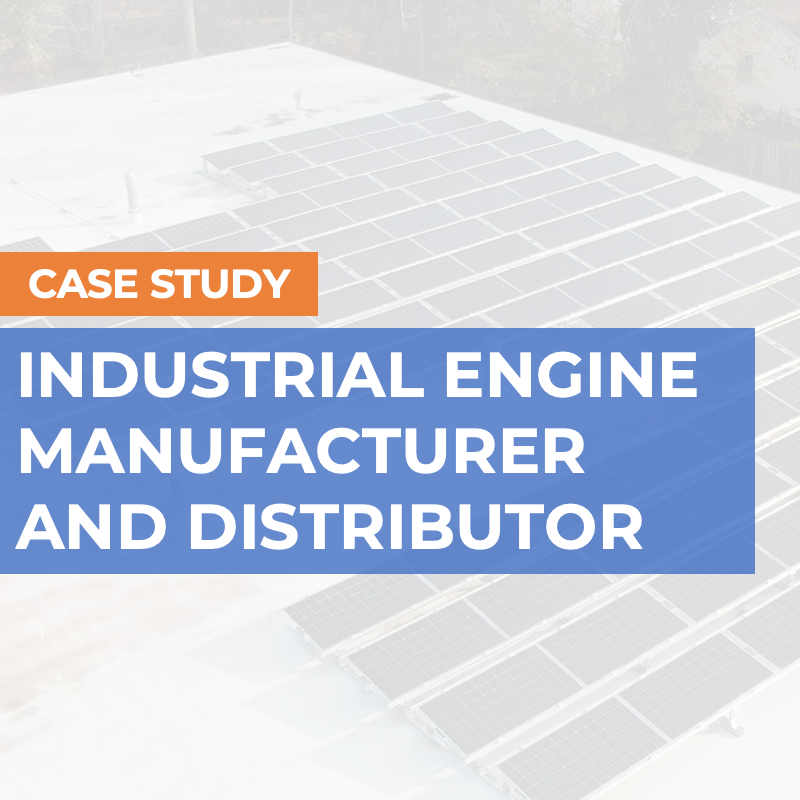MARYLAND SOLAR INCENTIVES
Now is the time to take your business solar in Maryland
Maryland offers a number of solar incentives for commercial property owners who install solar panels. Maryland’s Renewable Portfolio Standard (RPS) requires utilities to source a certain percentage of their electricity from renewable sources by 2028. Solar counts double towards the RPS, making it an attractive option for commercial property owners looking to go green. In addition, Maryland offers a Solar Renewable Energy Certificate (SREC) program for commercial solar installations. Maryland also has a tax credit for commercial solar installations. These Maryland solar incentives make going solar an attractive option for commercial property owners looking to save money and go green.
Solar Renewable Energy Certificates (SRECs) – Under Maryland law, an SREC represents the generation attributes of 1 megawatt-hour (MWh) of electricity generation (or equivalent) from a qualifying solar facility. Electricity suppliers must purchase and retire solar renewable energy credits (SRECs) in order to meet their compliance obligations under the law, or pay a Solar Alternative Compliance Payment (SACP) for any shortfalls in SREC purchases. In order to begin producing SRECs for the Maryland RPS*, a solar generator must apply for certification as a qualifying generator from the Maryland Public Service Commission (PSC). In general, a PV facility must be connected to the distribution grid serving Maryland** in order to qualify as a source of SRECs for meeting an electricity supplier’s compliance obligation under the state RPS
Local Option – Property Tax Credit for Renewables and Energy Conservation Devices – Title 9 of Maryland’s property tax code provides local governments the option to allow a property tax credit for buildings equipped with a solar, geothermal or qualifying energy conservation device. Under this provision, counties determine the amount of the credit and are given the freedom to define solar, geothermal, and energy conservation devices. Counties also determine the length of time that the credit may be available up to a maximum of three years.
Counties applicable:
Anne Arundel County
Harford County (solar and geothermal)
Baltimore County (solar and geothermal)
Montgomery County (solar, geothermal, and energy conservation)
Prince George’s County (solar and geothermal)
Local Option – Property Tax Credit for High Performance Buildings – Title 9 of Maryland’s property tax code creates an optional property tax credit for high performance buildings. This statute allows counties and municipalities to provide a credit against the property tax for buildings which achieve at least a silver rating according to the U.S. The counties or municipalities which elect to provide this property tax credit may determine the amount of the property tax credit under this section, the duration of the property tax credit, the criteria and qualifications necessary to receive the credit, and any other necessary provisions.
Harford County – Property Tax Credit for Solar and Geothermal Devices – Harford County offers a tax credit from real property taxes imposed on residential buildings, nonresidential buildings, or other structures that use solar or geothermal devices for heating, cooling, water heating or generating electricity for on-site consumption. The credit amount is equal to one year of total real property taxes or $2,500 per device, whichever is less.
Montgomery County – High Performance Building Property Tax Credit – Montgomery County has exercised this option by offering property tax credits on new or extensively modified multi-family residential and commercial buildings that meet certain high performance building standards. An “extensive modification” is defined as a structural modification that alters 50% or more of the building’s square footage.
| Building Type | Certification Type | Exemption Amount | Term |
| Covered | LEED-NC or LEED-CS Platinum | 75% | 5 Years |
| Covered | LEED-NC or LEED-CS Gold | 25% | 5 Years |
| Covered | LEED-EB Platinum | 50% | 3 Years |
| Covered | LEED-EB Gold | 10% | 3 Years |
| Not Covered | LEED-NC or LEED-CS Platinum | 75% | 5 Years |
| Not Covered | LEED-NC or LEED-CS Gold | 50% | 5 Years |
| Not Covered | LEED-NC or LEED-CS Silver | 25% | 5 Years |
| Not Covered | LEED-EB Platinum | 50% | 3 Years |
| Not Covered | LEED-EB Gold | 25% | 3 Years |
| Not Covered | LEED-EB Silver | 10% | 3 Years |
Howard County – High Performance and Green Building Property Tax Credit – Howard County has exercised this option by offering property tax credits for new and existing multi-family residential and commercial buildings that meet certain high performance building standards, and for the installation of energy conservation devices in LEED-certified structures.
High Performance Buildings (except R-2, R-3 buildings): credit of 10% to 75% of taxes owed for 3 to 5 years; varies by building type and building rating
High Performance R-2, R-3 Buildings: credit of 19% to 100% of taxes owed for 4 years; varies by building rating and declines for each year claimed (i.e., the Year 2 % is less than Year 1)
Green Buildings (w/energy conservation devices): credit of 14% – 20% of cost of device for 3 years; varies by building rating
Baltimore County – Property Tax Credit for High Performance Buildings and Homes – Baltimore County exercised this option in 2006 by creating property tax credits for new and existing multi-family residential (50+ units) and commercial buildings that meet certain high performance building standards. In 2008, the county also adopted a similar provision creating property tax credits for newly constructed high performance homes, and in 2010 added provisions for energy efficiency improvements in existing homes.
Commercial and Multi-family Residential (income producing, 50+ units)
| Performance Level | Credit Amount | Term |
| LEED-NC Platinum or NGBS Emerald | 80% | 5 years |
| LEED-NC Gold or NGBS Gold | 60% | 5 years |
| LEED-NC Silver or NGBS Silver | 50% | 5 years |
| LEED-CS Platinum | 70% | 5 years |
| LEED-CS Gold | 50% | 5 years |
| LEED-CS Silver | 40% | 5 years |
| LEED-EB Platinum | 50% | 3 years |
| LEED-EB Gold | 25% | 3 years |
| LEED-EB Silver | 10% | 3 years |
Commercial Clean Energy Rebate Program – The Maryland Energy Administration (MEA) offers rebates for mid-sized photovoltaic (PV) systems installed by businesses, non-profits, and local governments. Funding is available on first-come, first-serve basis and is subject to change based on funding availability.
| Commercial Clean Energy Rebates | ||
| Resource Conversion Technology | Installed Capacity Range | Award/Capacity Unit |
| Solar Photovoltaics (PV) | 1-8 kW-dc
8-108 kW-dc 108-250.0 kW-dc
Roof-Mounted: 250.1 – 375 kW-DC |
$1,000
$1,000 + 150/kW * (capacity – 8kW $16,000 + $100/kW * (capacity – 108 kW)
$20,000 + $80/kW * capacity $30,000 maximum |
Sales and Use Tax Exemption for Renewable Energy Equipment – Maryland enacted legislation exempting geothermal and solar energy equipment from the state sales and use tax. Solar energy equipment is defined as “equipment that uses solar energy to heat or cool a structure, generate electricity to be used in a structure, or provide hot water for use in a structure”. This legislation provides a 100% tax exemption.
Property Tax Exemption for Solar and Wind Energy Systems – The law revised the definition of eligible solar property to include devices that use “solar thermal electric energy” to generate electricity for use in a structure. A separate piece of legislation, amended the definition of solar energy property to include property that generates electricity which is put on the electrical grid (e.g., as in a net metering arrangement).
Parking Lot Solar PV with EV Charger Grant Program – Maryland Energy Administration offers grants for installing solar photovoltaic (PV) over parking lots with electric vehicle (EV) chargers. The system must install a minimum of 75 kW of solar mounted on a canopy structure over the parking lot with a minimum of four qualified Level II or Level III EV chargers. The program offers grant up to $600 per kW of PV installed with a maximum cap of $300,000 per project. Total fund of $1.6 million is available for FY 2021 for the program. The project must be located in a parking lot in Maryland which is accessible for use at least five days a week. Systems must be net-metered.
Jane E. Lawton Conservation Loan Program – The Jane E. Lawton Conservation Loan Program takes the place of the former Community Energy Loan Program (CELP) and the Energy Efficiency and Economic Development Loan Program (EEEDLP). This program provides local governments, nonprofits, and businesses in the State with an opportunity to reduce their operating expenses by identifying and installing cost-effective energy conservation improvements. Lawton Loans can be made to eligible nonprofits, including hospitals and private schools; local governments, including public school systems and community colleges; and businesses. The main qualifying criteria for projects are that they save energy and have a simple payback of 13 years or less. Applicants must provide complete applications that document project costs and estimated energy savings in way that can be validated by MEA.
Maximum Loan: $5,000-$200,000
Loan Term: 13 years or less
Mathias Agricultural Energy Efficiency Grant program – Mathias Agriculture Energy Efficiency program offered by the Maryland Energy Administration provides grants to farms and businesses in agricultural sector to offset 50% of the cost of energy efficiency and renewable energy upgrades. Program is open to farms and businesses in agricultural sector for energy efficiency and renewable energy projects that have total cost of at least $20,000. Examples may include, but not limited to dairy, orchard, poultry, greenhouse, processor, sawmill, aquaculture and others. Projects must save energy through installation of energy efficiency measures, or implement renewable energy in conjunction with energy efficiency measures.
City of Baltimore- BEI Loan Program – The City of Baltimore provides low interest loans to non-profits and for-profit small businesses located in the City of Baltimore. The City has partnered with two non-profit organizations- Healthly Neighborhoods and Reinvestment Fund- to administer the loans. The building for the energy efficiency project must be located within the New Markets Tax Credit eligible census tract or a Baltimore Main Streets District.
Maximum Loan: Up to $2 million (maximum of 90% of the cost of the project)
Loan Term: Up to 15 years
Application fee: Small loan $250, Large loan $100
Origination fee: Small loan 2%, Large loan 1%
Servicing Fee: 0.37% of monthly payment for small loans
Collateral: First for second position on mortgage lien.









